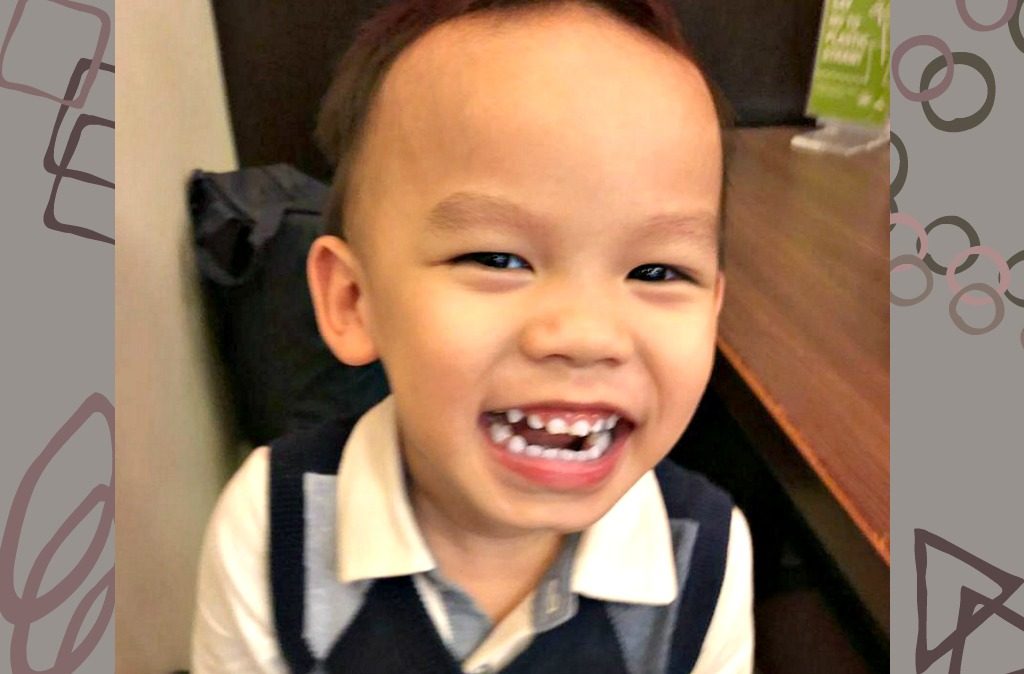It’s a magical moment when your baby smiles at you and you see his little teeth. Each day is more rewarding than the last as your toddler starts to have toothy smiles. The path to a toddler’s good oral health starts with the ability to differentiate facts from misconceptions.
Myth 1: Fluoride toothpaste harms my little one
There was once a misconception that fluoride toothpaste is harmful to children especially kids under two years of age, as they are usually incapable of rinsing and spitting. As a result, parents usually opt for fluoride-free toothpaste. Fluoride however, is essential for both baby and adult teeth as it acts as a protective shield from bacteria attack and will also constantly remineralize the outer layer of our teeth.
The water supply in most states of Malaysia contains a minimal amount of fluoride, which also means that a certain amount is still consumed by your baby. Do consider using fluoridated toothpaste regardless of your kid’s age. All one needs to do is to control the amount of toothpaste used; a rice size amount of toothpaste for kids below two, while a pea sized amount is suitable for children of three to six years of age. Long-term effects of lack of fluoride may also cause teeth to become more fragile and also increase the risk of cavities.
Myth 2: Cavities in baby teeth do not matter
There is a common misconception that since baby teeth will eventually fall out, what happens to them beforehand doesn’t matter. Unfortunately, cavities can actually cause a handful of problems if left untreated. Cavities will gradually cause pain and even affect a toddler when eating or sleeping. If treatment is given too late, the bacteria might potentially spread to the nerves inside the root which makes treatment more complicated. As the saying goes, prevention is better than cure!
Myth 3: It’s fine to bottle feed till my toddler falls asleep
No doubt bottle feeding till your toddler falls asleep is the most calming way to put kids in bed. However, this brings a significant risk to cavities. Some parents claim that their kids brush before bed, but milk given after brushing defeats that purpose.
The residue of milk on the teeth will turn acidic and potentially cause cavities. Furthermore, our saliva flow reduces when sleeping, therefore the milk residue may have little chance to be flushed away by the saliva.
Myth 4: Baby teeth fall out sooner or later
We may naturally assume that baby teeth will eventually fall out anyway and shouldn’t put too much thought to dental care at an early age. However, it is not rare to see cases where some children have congenital absence of permanent teeth. This condition means that for some reasons, the child may be missing permanent adult teeth, and their baby teeth will remain in the mouth as a replacement for the permanent teeth. Therefore, it is important to keep all baby teeth healthy and free from cavities.
Myth 5: Children do not need to see a dentist until there is a problem
Unfortunately, many parents do not take their child to the dentist until a dental problem arises. By the time the child is brought in, often times there is a lot to be done. As a result of insufficient time to treat the severity of the issues, the child may have difficulty sitting throughout the lengthy dental procedures and may lead to a very uncomfortable experience for all parties involved.
It is suggested that parents bring their children for a dental visit as soon as the child begins teething, although everything seems fine. It is important to acclimatize the child towards a dental setting and establish a trusting relationship with the dentist. During the first visit, the dentist would usually focus on introducing and acclimatizing the child to a dental setting. If any further treatment is needed, it is always recommended to schedule a separate future appointment.
